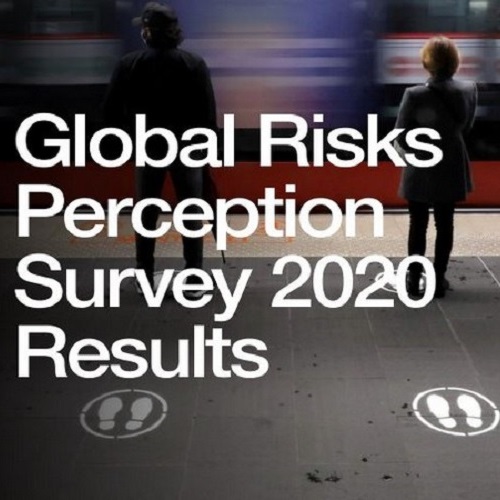Geneva [Switzerland], January 19 (ANI): Infectious diseases, extreme weather and livelihood crises pose a critical threat to the world in the next two years, according to the latest survey by World Economic Forum (WEF) members from business, government and academia.
The WEF Global Risks Report 2021 contains findings of the latest Global Risks Perception Survey (GRPS) with 841 total responses collected from September 8 to October 23.
Among the highest likelihood risks of the next 10 years are extreme weather, climate action failure and human-led environmental damage as well as digital power concentration, digital inequality and cybersecurity failure.
Among the highest impact risks of the next decade, infectious diseases are in the top spot followed by climate action failure and other environmental risks; as well as weapons of mass destruction, livelihood crises, debt crises and IT infrastructure breakdown.
When it comes to the time-horizon within which these risks will become a critical threat to the world, the most imminent threats — those that are most likely in the next two years — include employment and livelihood crises, widespread youth disillusionment, digital inequality, economic stagnation, human-made environmental damage, erosion of societal cohesion and terrorist attacks.
Economic risks feature prominently in the three to five year timeframe including asset bubbles, price instability, commodity shocks and debt crises followed by geopolitical risks including interstate relations and conflict, and resource geopolitisation.
In the five to 10 year horizon, environmental risks such as biodiversity loss, natural resource crises and climate action failure dominate; alongside weapons of mass destruction, adverse effects of technology and collapse of states or multilateral institutions.
Underlying disparities in healthcare, education, financial stability and technology have led the crisis to disproportionately impact certain groups and countries. Not only has Covid-19 caused more than two million deaths at the time of writing, but the economic and long-term health impacts will continue to have devastating consequences.
The pandemic’s economic shockwave — working hours equivalent to 495 million jobs were lost in the second quarter of 2020 alone — will immediately increase inequality, but so can an uneven recovery. Only 28 economies are expected to have grown in 2020.
Nearly 60 per cent of respondents to the GRPS identified infectious diseases and livelihood crises as the top short-term threats to the world. Loss of lives and livelihoods will increase the risk of social cohesion erosion, also a critical short-term threat identified in the GRPS.
The world’s leaders will hold a virtual Davos Agenda event next week, instead of the traditional January event in Switzerland, and a face-to-face meeting in Singapore in May. (ANI)












